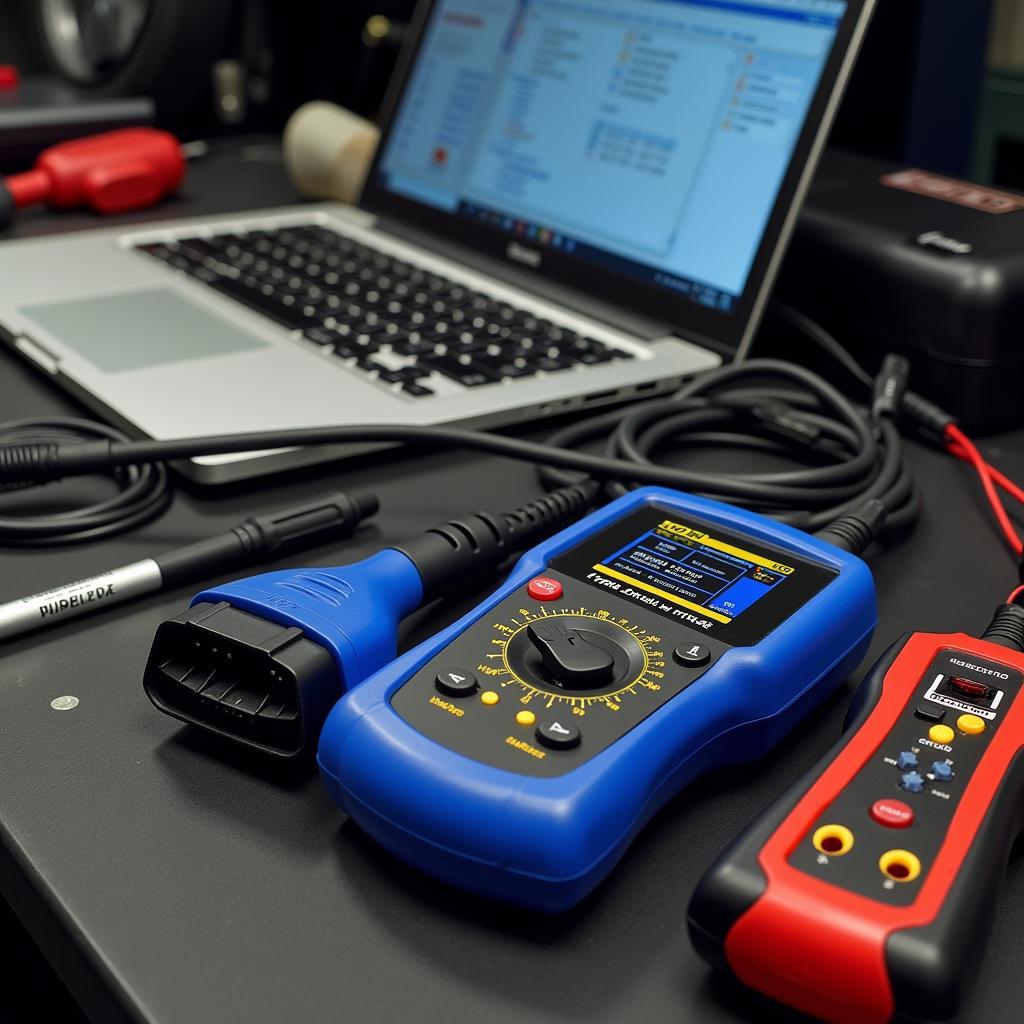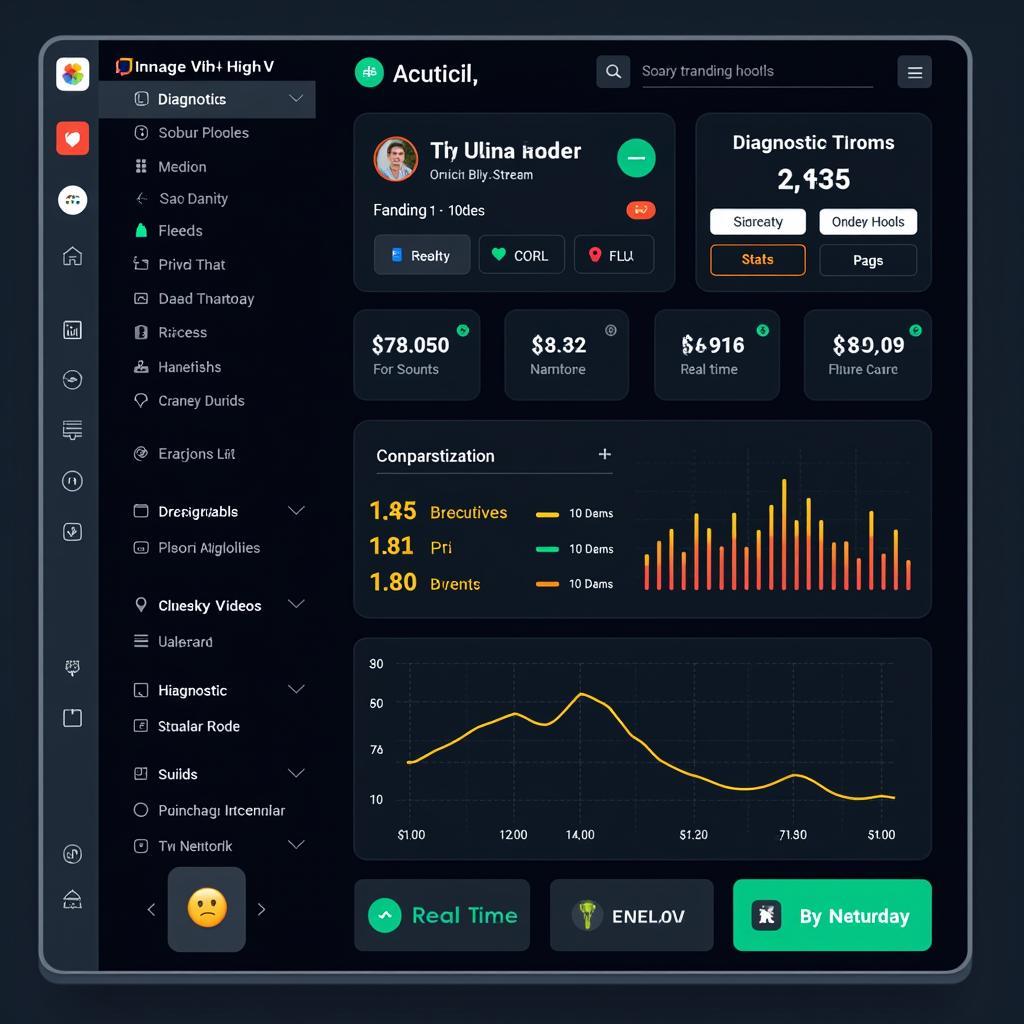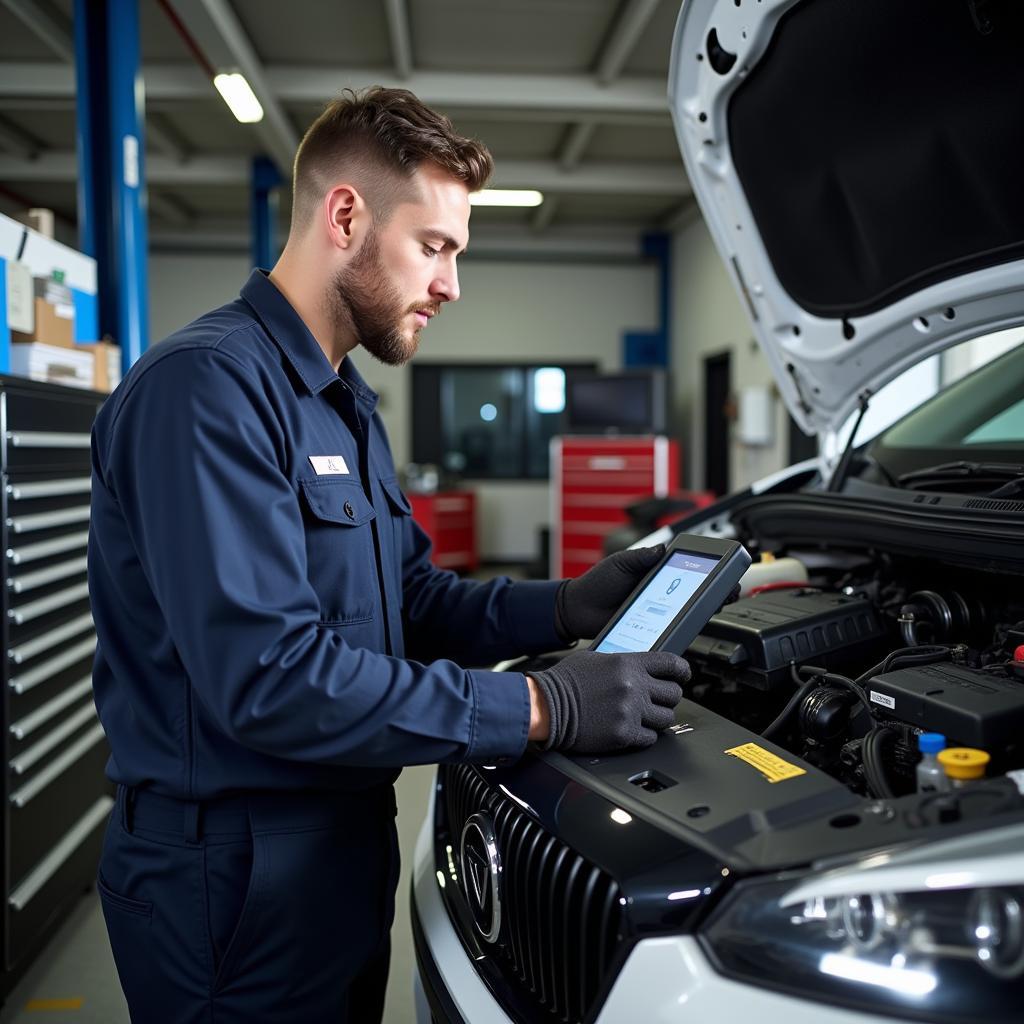The automotive industry is rapidly evolving, with technology playing an increasingly vital role. As vehicles become more complex, the demand for skilled car diagnostics professionals is skyrocketing. This presents a lucrative opportunity for entrepreneurs looking to start their own car diagnostics business. This comprehensive guide will equip you with the essential knowledge and strategies to launch and thrive in this rewarding industry.
Understanding the Car Diagnostics Landscape
Before diving into the specifics of starting your business, it’s crucial to grasp the fundamentals of the car diagnostics landscape.
Modern vehicles are equipped with intricate electronic systems that control various aspects of their operation. When a problem arises, these systems generate diagnostic trouble codes (DTCs) that provide clues about the underlying issue. Car diagnostics involves using specialized tools and software to read and interpret these codes, pinpoint the root cause of the problem, and recommend appropriate repairs.
 Car Diagnostic Tools
Car Diagnostic Tools
Essential Steps to Launch Your Car Diagnostics Business
1. Develop a Solid Business Plan
A well-structured business plan is the foundation of any successful venture. It outlines your business goals, target market, services offered, marketing strategy, financial projections, and more. A comprehensive business plan will guide your decisions and attract potential investors or lenders.
2. Acquire the Necessary Skills and Certifications
Having a strong foundation in automotive technology is paramount. Pursue relevant certifications like ASE (Automotive Service Excellence) certifications to enhance your credibility and demonstrate your expertise to potential customers.
3. Invest in Essential Equipment and Software
To provide top-notch car diagnostics services, you’ll need to invest in high-quality equipment and software. Key tools include:
-
OBD-II Scanners: These handheld devices connect to a vehicle’s OBD-II port to read and clear DTCs.
-
Diagnostic Software: Advanced software programs provide in-depth analysis of vehicle data, troubleshooting guides, and wiring diagrams.
-
Multimeter: This versatile tool measures voltage, current, and resistance, aiding in diagnosing electrical issues.
-
Lab Scope: A lab scope helps analyze signals from various sensors and components, enabling you to diagnose complex problems.
 Car Diagnostic Software Interface
Car Diagnostic Software Interface
4. Define Your Target Market and Services
Identify your niche within the car diagnostics market. Will you cater to individual customers or specialize in a specific vehicle make or model? Clearly define the range of services you’ll offer, such as:
-
Engine Diagnostics: Diagnosing and troubleshooting engine-related issues, including misfires, poor fuel economy, and emissions problems.
-
Transmission Diagnostics: Identifying problems with automatic or manual transmissions, such as slipping gears or rough shifting.
-
ABS and Airbag Diagnostics: Diagnosing issues with anti-lock brake systems (ABS) and airbag control modules.
5. Set Up Your Workspace
Decide whether you’ll operate a mobile diagnostics service or establish a physical shop. Mobile services offer flexibility and lower overhead costs, while a shop provides a professional setting and the space to accommodate more equipment.
6. Establish an Online Presence
In today’s digital age, having a strong online presence is essential for attracting customers. Create a professional website that showcases your services, expertise, customer testimonials, and contact information. Leverage social media platforms to engage with potential customers and build brand awareness.
7. Develop a Marketing Strategy
Implement effective marketing strategies to reach your target audience. Consider online advertising, local SEO optimization, partnerships with repair shops, and offering promotional discounts to attract initial customers.
Navigating Challenges and Ensuring Success
As with any business, starting a car diagnostics venture comes with its share of challenges. Here are some tips to overcome them and achieve long-term success:
-
Stay Updated with the Latest Technology: The automotive industry is constantly evolving. Continuously invest in training and acquire new certifications to stay abreast of the latest advancements in car diagnostics technology.
-
Provide Excellent Customer Service: Building strong customer relationships is crucial for repeat business and positive referrals. Be responsive, transparent in your communication, and provide exceptional service.
-
Manage Finances Wisely: Keep track of your income and expenses diligently. Maintain a healthy cash flow to cover operational costs, invest in new equipment, and ensure profitability.
 Experienced Car Diagnostic Technician
Experienced Car Diagnostic Technician
Conclusion
Starting a car diagnostics business can be a fulfilling and lucrative venture for those with a passion for automobiles and technology. By following the steps outlined in this guide and staying committed to continuous learning and providing excellent customer service, you can establish a thriving business in this in-demand industry.

Leave a Reply